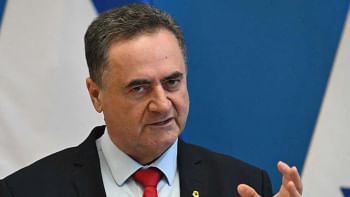Invest remittance wisely, let your money grow

Al Mahmud, who hails from Raiganj upazila of Sirajganj, went to Bahrain as a migrant worker 10 years ago.
During the first one-and-a-half years of his stay in the Middle Eastern country, Mahmud would send money to his family in Bangladesh through fellow workers who were travelling home. Later, he started to send funds through an exchange house.
But with help from his friends and family, Mahmud opened an account with a bank in Bangladesh in his wife's name.
And since the bank has operations in the city where he currently lives, it has allowed him to send money back home without any hassle.
Similarly, Abdur Rouf, who went to the US under the country's Diversity Visa Program, used to send money to his parents through informal channels.
Now though, he uses a regular bank account and its respective mobile app to easily transfer funds to Bangladesh.
Mahmud and Rouf represent millions of Bangladeshi migrant workers who spend the better part of their lives working in foreign countries to ensure a secure future for themselves.
Currently, most banks in Bangladesh have designated desks to help channel remittance from non-resident Bangladeshis and migrant workers in a quick and easy way.
The lenders have built up a secure network for banking transactions by deploying staff and partnering with exchange houses worldwide.
For example, Brac Bank, a private commercial bank, has a global network from Asia to Europe, the US, Africa and Australia to help migrant workers transfer funds.
"Our bank has agreements with 60 different exchange houses, allowing us to offer banking services across the world," said Shahrear Zamil, head of remittance and NRB banking at Brac Bank.
Besides, we have four financial consultants. Two of them are active in Dubai and South Korea, where around one lakh skilled and trained Bangladeshi workers are employed," said Shahrear Zamil, head of remittance and NRB banking at Brac Bank.
Currently, about one crore migrant workers are employed in Saudi Arabia, the UAE, the US, the UK, Malaysia, Singapore and South Korea and some European countries.
Other than money transfers, the lenders operating in Bangladesh also offer the country's migrant workers a number of investment and savings opportunities that can be availed from abroad.
Brac Bank has its Probashi Savings (interest-bearing), and Probashi Current (non-interest bearing) account facilities. It also has a Probashi Subidha Account for the account's beneficiaries, such as the migrant worker's wife, parents or children.
Similarly, Islami Bank Bangladesh Ltd (IBBL), which handles one-third of the country's inward remittance, has several deposit and investment products for expatriates.
Other than the regular deposit schemes, it has its Mudaraba NRB Savings Bond Account and Mudaraba Foreign Currency Deposit Account.
"The non-resident Bangladeshis (NRBs) who have been serving abroad and their family members will be eligible to purchase the Mudaraba NRB Savings Bond," said Mohammed Monirul Moula, managing director of IBBL.
Expatriates may even purchase the bond under the names of their minor children, he added.
With a view to encouraging the NRBs to invest their hard-earned money in productive sectors, IBBL introduced the NRB Entrepreneurs Investment Scheme.
"Besides these specialised deposits and investment schemes, NRBs can avail all other types of savings and investment schemes with our bank," Moula said.
Bangladesh Bank has three types of bonds where NRBs and migrant workers can invest and enjoy different interest rates.
The bonds are wage-earner development bonds (WEDBs), which offer an interest rate of 12 per cent on a half-yearly basis with a five-year tenure.
The Dollar Investment Bond (DIB) offers an interest rate of 6.5 per cent, also on a half-yearly basis, and matures in three years.
The Dollar Premium Bond (DPB) carries an interest rate of 7.5 per cent, and the tenure is three years.
Of these bonds, most migrant workers prefer WEDBs for their higher interest rate, according to a senior central bank official.
However, these bonds can only be purchased with taka and Bangladesh Bank has capped the investment ceiling at Tk 1 crore while the minimum investment is set at Tk 25,000.
One can purchase WEDBs from abroad through a designated bank branch while forms are also available on the Bangladesh Bank website.

 For all latest news, follow The Daily Star's Google News channel.
For all latest news, follow The Daily Star's Google News channel. 



Comments